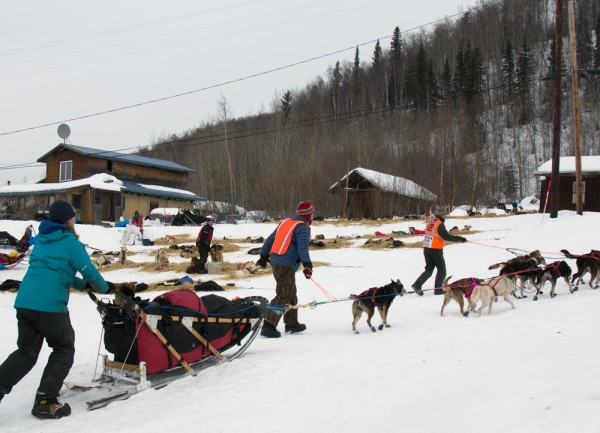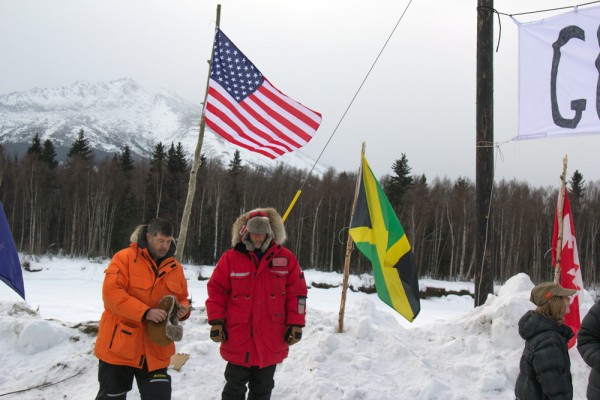
There’s really not a lot of “planning” for this. I’m only two days in, and I feel like more attention goes towards tracking flights, coordinating deadlines, and finding Internet than it does to figuring out who’s at the front of the race and why.
When I walked in to the school at Takotna I saw KTUU reporter and producer Kyle Hopkins, who’s been on more than a few Iditarods. He asked how it was going, and I unloaded on feeling like I’m floundering in trying to just stay on top of what’s going on.
“Logistics are the hard part,” he said frankly.

It reminds me of the few times I got to actually drive a dog-sled, up in Nome. Enchanting, bewitching, enthralling–these are some of the words that swim to the surface when I try to describe the sensation of runners shifting under boot as dozens of dog legs fluttered in the foreground. “Sense-making,” though, is the aptest explanation I’ve found, though. All the work of keeping dogs made sense if it was in service to that feeling.
Mushing is glamorous, but I don’t think that’s the case with the warren of tertiary tasks demanded of keeping a healthy, happy dog team. Poop-scooping, feeding, fall training through mud, the battery of bills: plenty of chores that are anathema to glamour.
But maybe the rugged mushers and the bedraggled radio-reporters have a similar ambition with following the trail: strip away the clutter for a while. When the drop bags have everything you need, when the soup is hotter than you expected, when the Wi-Fi works, when all the parts click together and you’re just running through beautiful places you might not otherwise have cause to be–maybe that’s the goal.
And eventually, possibly, a shower in Nome.
Until then, fat, slow snowflakes are dropping on Takotna, and the news deadline is still a few hours away.
Zachariah Hughes reports on city & state politics, arts & culture, drugs, and military affairs in Anchorage and South Central Alaska.
@ZachHughesAK About Zachariah




